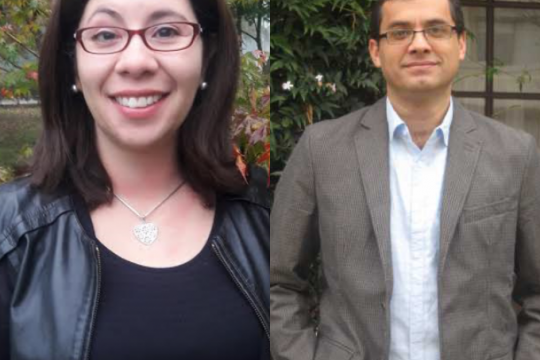Researchers from EfD Chile and Center of Applied Ecology and Sustainability (CAPES), Dr. Marcela Jaime and Dr. Felipe Vásquez helped organize four research sessions at the 2022 Society for Cost-Benefit Analysis conference. These sessions focused on postgraduate students of Latin American countries, interaction with policymakers associated with water utilities, and tariff structures.
The 2022 Society for Cost-Benefit Analysis conference is an annual meeting where researchers worldwide share their findings of the theory and practice of benefit-cost analysis. The SBCA supports evidence-based policy decisions and promotes the interaction between scholars and practitioners from governments, academia, nonprofit organizations, and the private industry. CAPES provided scholarships for 20 student and 8 full researcher fellowships to attend this event.
This year, the conference took place virtually on March 17-18 and 21-22, and it brought participants into parallel research sessions, roundtable discussions, and plenaries.
Postgraduate students met experts
It was the opportunity for students from Latin American countries to present their research works with a very informed audience, receiving feedback from experts in the field. Moreover, EfD researchers Felipe Vásquez and Marcela Jaime organized and chaired these sessions.
The topics discussed were related to risk preferences during the Covid-19 outbreak, the analysis of market segmentation, biodiversity conservation, and air pollution reductions, and were presented by students from Chile and Perú.
“It was a great experience for postgraduate students to connect with expert researchers in the field of Economics and receive feedback to improve their works,” says Felipe Vásquez.
“We accounted for the participation of important researchers including Vic Adamowicz, from University of Alberta; John Whitehead, from Appalachian State University; José María Gil Roig, from Universidad Politécnica de Cataluña; and John Stranlund, from University of Massachusetts, Amherst.”
Promotes formation of graduate students
This is not the first time that EfD Chile and CAPES have promoted the participation of students at conferences and workshops, as it has been the case of exclusive student research sessions at EfD Chile annual meetings. For the center director, Marcela Jaime, it is crucial that students have the opportunity to get feedback on their thesis project during their formation.
“EfD and CAPES have always provided opportunities not only for students’ interaction with expert researchers but also for proposing new ideas of research. We have to keep working towards this objective through our involvement in supporting the new generation of environmental and resource economics researchers,” she says.
The Society for Benefit-Cost Analysis (SBCA) works to improve the theory and practice of benefit-cost analysis and support evidence-based policy decisions. SBCA members include scholars and practitioners from around the world, from government, academia, nonprofits, and private industry. They represent numerous disciplines such as economics, law, engineering, public policy, decision science, and natural science. The Society addresses a wide range of policy areas, including criminal justice, education, energy, environmental quality, homeland security, poverty, public health, transportation, and many other topics. Society members work with a broad set of methods, including benefit-cost analysis, cost-effectiveness analysis, risk-benefit analysis, applied welfare economic analysis, and damage assessments. If you want to know more about SBCA, please click on this link.
